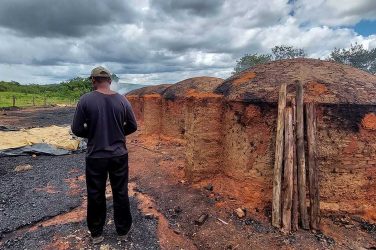 There's something to be said about Rio de Janeiro. It is undoubtedly one of the most beautiful cities of the world, a beauty that cannot be hidden by the numerous favelas (shantytowns) that surround the city. The most famous postal card of Brazil embraces the ideal of beauty and joy, just like its most famous monument, Christ the Redeemer, with open arms overlooking the city.
There's something to be said about Rio de Janeiro. It is undoubtedly one of the most beautiful cities of the world, a beauty that cannot be hidden by the numerous favelas (shantytowns) that surround the city. The most famous postal card of Brazil embraces the ideal of beauty and joy, just like its most famous monument, Christ the Redeemer, with open arms overlooking the city.
Unfortunately, there is also a sad truth: Violence in all of its aspects is affecting the beautiful image, where the girl from Ipanema once used to walk.
Brazil and the world have been talking about last week's tragedy involving 11 Brazilian Army officials, who are being accused of triple-qualified homicide after surrendering three young men to local traffic dealers. The three victims belonged to the Morro da Providência (Providence Hill), a Rio favela.
The men were arrested following a routine check by the Army. The same day of the arrest they were released to traffic dealers from the Morro da Mineira (Miner's Hill), another favela. The three youngsters, including two minors, were tortured and killed.
According to police chief-officer Ricardo Dominguez, all military officials were very aware of the risks the young men would face since these two favelas are controlled by two opposing drug trafficking gangs. If condemned, the military officials could serve between 16 to 90 years in prison.
The investigation, which contains 200 pages, was concluded this Thursday, June 19, and points to possible involvement of the Brazilian military with traffic dealing in Rio de Janeiro.
Chief-officer Dominguez is asking the civil court to consider preventive detention against the Army officials , and believes that the Justice System should use eavesdropping for further investigation. "There was enough time before the deaths occurred for the Army officials to notify the authorities of their actions," he said.
In light of the recent event, the federal government is considering a reduction of Army patrol and control over the hills of Rio de Janeiro. Army officials involved in this case informed police authorities, that the three men were arrested, following a suspicion that they could be carrying weapons.
They were taken to the police station, and released with no further investigation. It is not certain yet, whether the Army officials will have a trial through a civil or military court. The suspects are being detained at the 1st Army Infantry Police at Tijuca, North region of Rio de Janeiro.
Débora Gonzaga Bastos, one of victims' sister, informed the press that her brother Wellington Gonzaga Bastos was returning from a party, when the army officials stopped them, and arrested them, releasing them to the criminals afterwards.
Wellington Bastos used to work at a social agency at Morro da Providência on housing recuperation. This incident involved 11 military officials including a lieutenant and a sergeant. Reports suggest that some of the military officials have already confessed the crime.
The bodies of Wellington Gonzaga da Costa, 19, Marcos Paulo da Silva, 17, and David Wilson Florêncio da Silva, 24, were found in a dumpster. Infuriated members of the Morro da Providência community organized a march against the Army and set eight buses on fire.
Rio de Janeiro is one of the wealthiest states of Brazil. Most of the state's profit originates from oil exploitation, which represents billions and billions of dollars each year. Not even 1% of this money, however, is invested in social programs.
According to a 2007 United Nations Report on drugs and crime, narco-traffic in Brazil is responsible for employing at least 20,000 people working with drug delivery. They are minors between the ages of 10 and 16 making a monthly pay between US$ 300 and US$ 500, way more than any regular job would pay.
That same UN report also indicated that Brazil needs to do more to socially include 50 million Brazilians.
None of this is really new and appalling for Brazilians anymore. Recent drug involvement in Rio de Janeiro even included a state-level representative. While the media reports drugs busts with enthusiasm, it shows very little or almost nothing on social reforming practices.
Brazilians still watch villain-hero themed TV novelas (soap operas) with genuine concern, still get upset at daily programs preaching death for criminals and dealing with the inefficiency of the medical system.
The elite, however, still dreams of New York watching get-out-of-the country touristic programs.
As the blame market keeps increasing its share prices on the poverty highway, Brazil forgets that in order to host the 2016 Olympic Games in Rio, it will need to follow Adam Smith's advice: "No society can surely be flourishing and happy, of which the far greater part are poor and miserable."
Edison Bernardo DeSouza is a journalist, having graduated from the Pontifical Catholic University in São Paulo, Brazil. He lived in the US for close to 10 years and participated in volunteering activities in social works agencies. DeSouza currently lives in São Paulo where he teaches English as a Second Language, and is pursuing further advancements in his career. He is particularly interested in economics and human rights articles.




